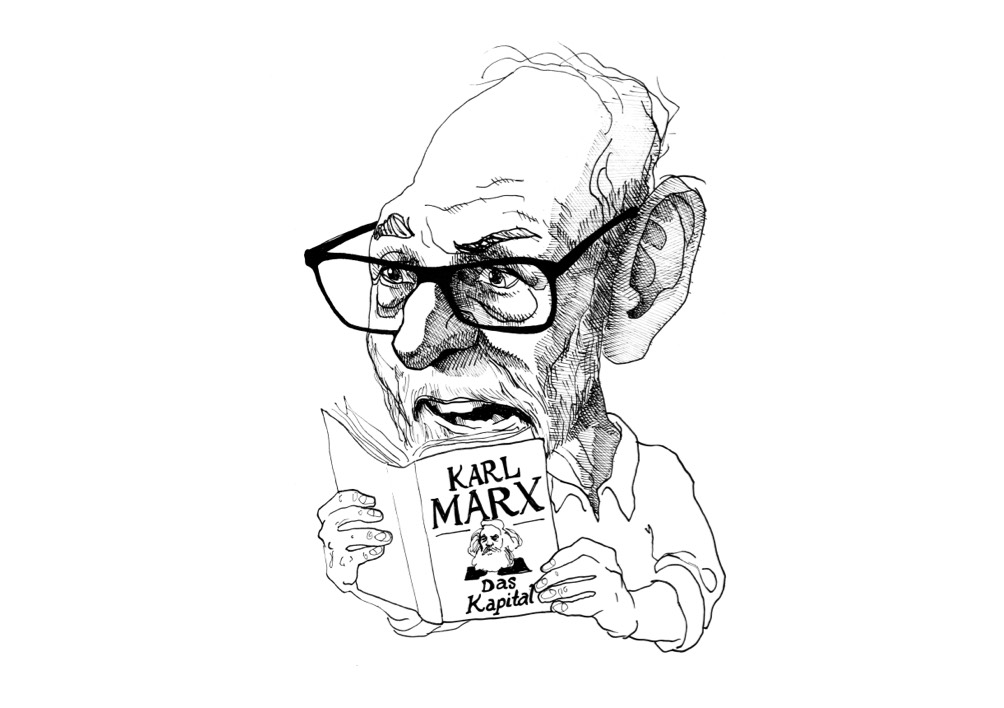Nov 20, 2023 Politics
On the night Wayne Brown was elected mayor of Auckland, he took to the stage at his celebration party, ukulele in hand, to perform a specially rewritten version of Ray Charles’ ‘Hit the Road Jack’. “Hit the road, Goff,” he sang at the disappearing spectre of his predecessor, who had resigned from politics ahead of the election, “and don’t you come back no more (no more no more no more)”.
It was as much a rude send-off as a mission statement. This was the end of the centre-left, Labour-endorsed administrations that had dominated local government in Auckland since the super-city council was established in 2010. Brown had surfed into office on a wave of backlash from property-owning Boomers upset at rates rises and cycle lanes. He was their Mr Fix-It.
The left-leaning North Shore ward councillor Chris Darby remembers watching the first few weeks following the election with growing trepidation. “Last October, Wayne’s future looked like something from the late 50s of another century,” he says. Nine months later, Darby sat at the council table in Auckland’s Town Hall as Brown, in the face of protests from the council’s conservative faction, fought to hand him an influential role. Waitematā and Gulf ward councillor Mike Lee had been serving as a council-appointed director on the board of Auckland Transport (AT) since Brown became mayor and was expected to see out a three-year term. But the mayor had soured on him, and wanted Darby appointed in his stead. The debate was acrimonious, with several Brown allies angrily opposing the move.
“I just find this unacceptable,” said Albert-Eden-Puketāpapa ward councillor Christine Fletcher in a speech addressed to Brown. “It feels like an ambush. And I expected better from you. And I’m really disgusted today.” Albany ward councillor John Watson called Lee’s demotion “objectionable”. “What’s he done?” he asked. “I haven’t heard. Has he been too critical or tried to hold [AT] to account too much? I don’t know. Yet we’re considering moving him out.”
The usurpation was a microcosm of a wider shift in the political power dynamics at the council. Brown began his term forging partnerships with councillors who shared his distaste for Goff and his supporters. But over the past six months, several of those alliances have frayed, in some cases to breaking point. The breakdowns are in part over policy differences, but more pertinently, philosophical ones. Brown, the anti-politician who billed himself as the man who’d crack heads and fix Auckland’s big issues, is struggling to work with councillors who built their careers saying ‘no’ to things, and have no compunction or ability to change now.
In those councillors’ absence, their progressive counterparts have started to assert themselves, and have found a surprisingly sympathetic ear in the mayor’s office. Metro has spoken to a group of mostly left-leaning councillors, who gave a mix of on- and off-the-record thoughts about the new administration, one year in. Some say they wield more influence than they thought would be possible this term. “On election day, I thought, ‘Shit, I’m going to be Dr No for three years’,” says one. “But to be honest, I feel like I have more power and more ability to move the dial than I did [under Goff].” “The power balance has shifted,” adds another. Goff may have hit the road, but he — or at least some of his former supporters — are coming back.

Things started off rosy for the more conservative, change-averse wing of council. After the election on 8 October last year, Brown installed many councillors who had been sidelined from influential positions by Goff. Lee was co-opted on to AT’s board, but he wasn’t alone in being handed newfound power. Albany ward councillor Wayne Walker was put in charge of a council-controlled organisation direction and oversight committee, Watson and Christine Fletcher were given control of the transport and infrastructure committee, and Rodney’s Greg Sayers was paired with former National minister Maurice Williamson of Howick and commanded to take a hatchet to the council’s spending on the revenue, expenditure and value committee.
There were some early wins. Almost immediately after taking office, Brown sent a letter to Auckland Transport chastising it for “changing how Aucklanders live” and ordering it to “deeply understand how Aucklanders actually live now, how they want to live in the future and deliver transport services that support those aspirations”. Lee quickly followed with a letter of his own urging the agency to hit pause on three shovel-ready, cycle-friendly road upgrades across Grey Lynn, Arch Hill and Westmere. The response from AT’s interim chief executive, Mark Lambert, betrayed a whiff of panic. Despite neither letter having any statutory power or the backing of the full council, he convened an all-staff meeting to announce that cycling projects would be put on hold and the organisation would be changing how it assesses road upgrades in future.
So far, so good for the forces of regression to the mean. But a few months later, cracks started to show when Lee put a motion to the council intended to delay the pedestrian-friendly Te Hā Noa Victoria St upgrade in the central city which the mayor had been convinced to support. “Anyone who seconds that is going to be threatened within an inch of their life,” Brown replied.
More tension came during the 2023/2024 budget process, where councillors including Lee, Walker and Watson ardently opposed both the mayor’s preferred revenue-raising plan — selling shares in Auckland Airport — as well as moves to raise rates to cover the council’s $325 million fiscal hole.
Several progressive councillors, including North Shore’s Richard Hills and Waitākere’s Shane Henderson, took a different tack, accepting a reduced share sell-off in exchange for compromise on other matters, including smaller cuts to services and raising rates. Hills has taken this conciliatory stance since the start of the current term, and been rewarded with a position as chair of the council’s council’s planning, environment and parks committee. “People say to me, ‘Why would you let the mayor bully you into voting a certain way?’,” he tells Metro. “But I worked with the mayor from the moment we had a draft budget to reverse as many of the cuts as I could. And he changed. I thought he would be stuck. There were four major levers to the budget and he moved on every lever. When has a mayor done that? I think, previously, mayors have seen any change to their draft budget as a failure. He saw it as trying to get everyone over the line.”
The full effects of the budget are still shaking out. In early September, the council sold a 7% stake in Auckland Airport, more than a third of the 18% holding it had held, for a total of $833 million, at an average price of $8.11 per share. It used the money to pay off debt. Spending cuts have left their mark, with job losses at the council and AT. Council insiders say staff morale, particularly at AT, is low.
But rates went up an average of 7.7% — several percentage points more than Brown initially proposed — and services including the Citizens Advice Bureaus were saved. Several councillors who worked with Brown have gone on to get promotions. Not only has Darby replaced Lee on the board of AT, Henderson has deposed Walker as the chair of the CCO direction and oversight committee.
Their elevation has been accompanied by a stream of unexpectedly progressive moves, including some spearheaded by Brown. In August, the council raised charges for on-street parking for the first time since 2010, in part to bring them into line with public transport fares, which are adjusted annually. Brown has also called for increased parking fines, saying they should be “at least $100” if the council wants to discourage car use. Both moves have been touted by transport and climate advocates who were hand-waved away during Goff’s tenure.
The council has also passed the Making Space for Water programme, aimed at creating a more permeable ‘sponge city’ to help ward off damage from future flooding. Perhaps most importantly, it’s taken steps to diminish the influence of AT’s strategy department, which has regularly been the subject of criticism and controversy, including recently for producing a Regional Land Transport Plan (RLTP) which projected an emissions increase of 6% between 2016 and 2031 and saw the council sued by the coalition All Aboard Aotearoa for failing to comply with its own climate goals.
Brown has personally made the case for reallocating road space to bus priority lanes and railed against transport megaprojects such as the road tunnels under the Waitematā Harbour proposed by National and Labour. On those issues, he’s in agreement with the urbanist organisation Greater Auckland. Its director, Matt Lowrie, says Brown’s stances have him cautiously optimistic. “There’s gonna be a lot of things he does that annoy a lot of people, that particularly advocates are not going to agree with, but it’s certainly been a lot more positive than a lot of people assumed it would be based on his age and his assumed political orientation.”
Some councillors attribute the political shift to the mayor’s frustration with the complacency of his conservative allies. Politicians like Lee and Walker spend a lot of their time complaining, and less offering solutions. That clashes with the mayor’s ‘fix Auckland’ mantra and his distaste for delay. “He’s looking around the room and thinking, ‘How the hell do I get my programme over the line?’” says Darby. “To do that you need colleagues who actually stand for something rather than against something.”
Ben Thomas, Brown’s campaign communications director, says the mayor’s increased reliance on councillors like Hills is partly down to pragmatism. Despite his campaign promises to bang heads together and get Auckland moving, Brown can’t achieve results without a leadership team, and some of the more competent potential allies are progressive, Thomas points out. “Whatever style of governance you promise, you’re still stuck with the very idiosyncratic electoral output of Auckland’s councillors.” A transport advocate, who didn’t want to be named due to his work with the council, is more blunt. “His allies just complain about stuff and don’t achieve anything. So he’s gravitated towards the progressive side of the council because they’ve got their shit together.”

The change could also be down to the mayor’s oxymoronic mix of opinionated belligerence and malleability. Brown’s flaws are well catalogued. He can be denigrating and disdainful. He performed woefully as a leader during the January floods and, later, the Queen St shooting. During the budget process, he called a press conference where he accused councillors of financial illiteracy then insulted Heart of the City chief executive Viv Beck. Afterwards, one of his staffers forwarded councillors a file of correspondence from constituents who had called them, among other things, “dip shits”. Brown’s deputy, Desley Simpson, appeared hours later on RNZ’s Checkpoint, where she was asked whether he was acting in a way befitting a mayor. There was a long pause. “He could potentially at times use better language,” she eventually said, before concluding: “TGIF!”
Women have often been on the receiving end of Brown’s worst abuse. He singled out Maungakiekie-Tāmaki ward councillor Josephine Bartley for harsh criticism during a long lunch with the Herald’s Shayne Currie. “No one is wholly good nor bad,” he said, “although Josephine Bartley is pushing the boundaries, I have to say.” Bartley was notably cooler on Brown in her interview with Metro, saying it’s “early days”. At a charity debate at the Viaduct bar HQ in July, Brown began a speech with the words: “Good evening ladies and gentlemen, hello darlings, sluts and whores, drongos, dickheads, family, friends, fuckwits.” Rumours have swirled about his treatment of staff. Council executives once had to step in following complaints from workers over upsetting conversations in the council lifts where Brown questioned them about the value of their jobs.
Despite the bluster and blow-ups, several councillors have described the mayor as open to criticism and willing to change his mind. Manurewa-Papakura ward councillor Angela Dalton has confronted Brown both publicly and in private after several of his controversies. “I appreciate that he’s taking on board some pretty harsh feedback and is accepting it humbly and wants to try harder,” she says. Darby has also had “robust” conversations with the mayor. He says Brown’s openness to disagreement extends to policy discussions, where he and councillors such as Hills have been arguing the case with the mayor for evidence-based transport solutions. Darby sees these efforts starting to pay off. “To be honest, I think he’s listening more. He’s still strong in his opinions. I don’t want to de-energise him in that area because I think that’s positive. But he’s learning that Auckland has some real problems in the transport area and they’re not going to be resolved by asphalting the landscape,” he says.
On some transport matters, Brown seems to have undergone a road-to-Damascus experience. Auckland Light Rail recently took him to Sydney to test out its underground metro and surface-level light rail systems. Despite on the campaign trail sneering about what he called a “tram” to the airport, and perhaps to the chagrin of some of the organisation’s executives who favour a tunnelled system, he came back singing the praises of the surface-level option favoured by the Green Party and organisations like Women in Urbanism. BusinessDesk local government journalist Oliver Lewis broke the news of the mayor’s newfound preference. “I have been surprised because it didn’t come through at all during the campaign,” Lewis says. “This was someone who was a bit more reactionary, who was talking about fixing Auckland, who was singing songs about his predecessor with lines like ‘hit the road Goff’. I didn’t think he’d be a practical and forward-looking mayor on transport.”
But the liberal metamorphosis is far from complete or comprehensive. Brown is hostile to bike lanes. Cycling advocates have described their “despair” at the city’s glacial progress toward a connected cycle network. The council remains steadfast in its efforts to preserve swathes of heavily renovated ‘special character’ housing close to the city centre, where it’s easiest for people to reduce car use and emissions. But Brown has been better than his worst critics expected, and in some ways a letdown to his most vociferous supporters. “The people who voted for him, expecting him to put all those woke people in their place, they’ve got to be disappointed,” says New Zealand Herald senior writer (and former Metro editor) Simon Wilson. “Or people who voted for him for low rates. But on the other hand, people who thought he was just evil and the worst possible person to lead the city — in some ways he’s been better.”
Others go further. One climate advocate says Brown looks set to achieve more than politicians who say the right things but do little, thanks to his penchant for low-cost, simple projects and lack of scruples about ruffling feathers in the council bureaucracy. “He’s not motivated by climate change, he’s motivated by getting shit done quickly, but we need to get shit done quickly to address climate change,” he says. “So there’s a synergy there. I’d rather see a little bit of progress towards some climate goals than no progress towards lots of climate goals.”
Brown won’t go down as anyone’s perfect mayor. He has an unerring ability to say the wrong thing during times of crisis. He’s uniquely skilled at annoying friends and foes alike. All of the progress of the last six months may yet go awry. As Bartley says, it’s early days. But for a man who likes to bring up his engineering credentials at every opportunity, Brown has a chance to go down as something he’d probably say is even better than a perfect mayor: a mayor who got things done, and maybe even fixed Auckland. Just a little bit.






